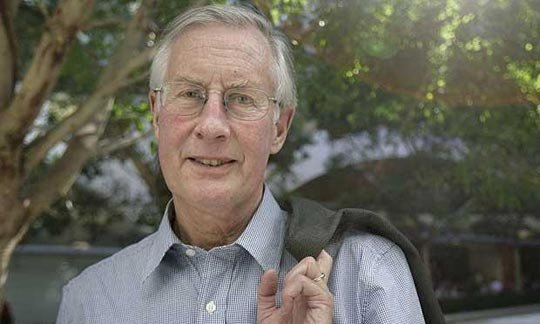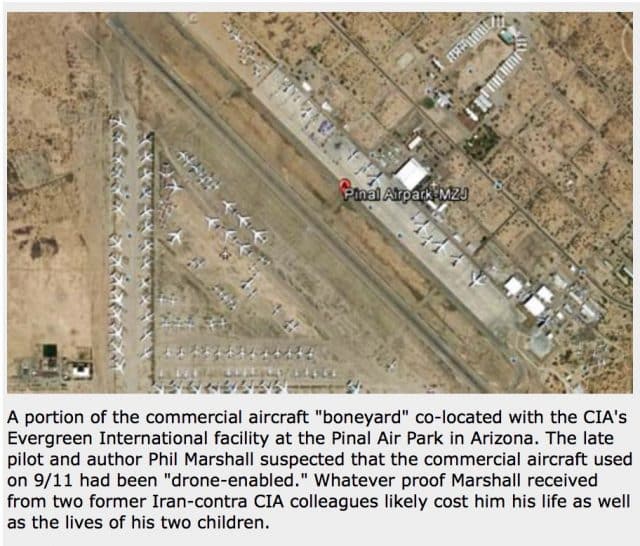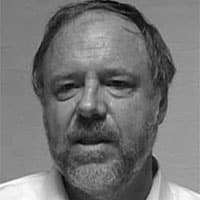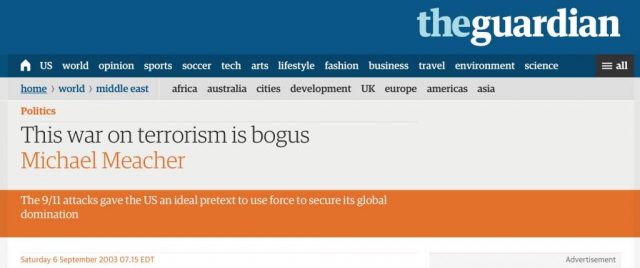
Michael Meacher, a long-time MP and former Minister of the Environment, was one of the UK’s leading politicians. When he broke ranks with the liars and traitors back in 2003, and came out for 9/11 truth in the pages of The Guardian, the Deep State panicked – and Meacher was targeted for vilification and threats.
This week Meacher suddenly dropped dead “after quite a short illness.” He had been in perfect health, and was mounting a low-key campaign to open an official inquest into 9/11 on behalf of British victims’ family members.
Meacher’s death is just one of many – most notably that of WTC-7 demolition witness Barry Jennings – that were all-too-convenient for the forces behind the 9/11 cover-up.
List of apparently assassinated 9/11 witnesses
Along with these and other witnesses, a number of journalists appear to have been murdered, including Phillip Marshall and Hunter S. Thompson. Marshall, an ex-CIA drug pilot and author of The Big Bamboozle: 9/11 and the War on Terror, was shot dead, along with his two children, in a fake murder-suicide designed to send a message to insiders, and perhaps to recover incriminating evidence. (Wayne Madsen says Marshall may have discovered evidence that airliners allegedly used in the 9/11 attacks are sitting at the “boneyard” in Pinal Air Park in Arizona.)

High crimes of the Deep State are generally followed by bloodbaths. Witnesses and investigators who pose an “actionable threat” to the criminals are routinely slaughtered en masse. The JFK assassination, for example, led to the murder of hundreds of witnesses and investigators. At least fifty of those murders have been “solved” beyond a reasonable doubt, meaning they have been pinned decisively on the JFK-hit coverup crew.
9/11 was such a large, sprawling, messy operation that it must have given the “clean-up crew” fits. While many of those who knew too much were presumably ordered to report to a room in one of the Towers or WTC-7 early on the morning of 9/11 and then locked inside, numerous logistical glitches must have created a large number of inadvertent witnesses and actionable threats. VT sources state that hundreds of mostly-unknown patriots in the armed forces, the intelligence services and the NYPD have been murdered to keep a lid on 9/11.
By risking his life for 9/11 truth, and finally adding his name to the list of martyrs for truth and justice, Michael Meacher achieved what so few people in today’s world can even hope for: A meaningful death and with it, a meaningful life.
RIP, Michael Meacher. You stood up for what was right.
How many of us, in this culture of cowardice and mediocrity, will ever realize such a monumental achievement?
–Kevin Barrett, VT Editor
SUDDEN DEATH OF MICHEAL MEACHER MP
-Press Release from Reinvestigate 9/11
Michael Meacher, who died yesterday, was in many ways the intellectual powerhouse behind the insurrection that saw Jeremy Corbyn elected leader of the Labour Party this summer.
He was one of the few politicians to attend the Parliamentary debate on money creation, he gave a stirring speech at the protests when UK hosted the secretive Bilderberg Group, and he was the only mainstream politician to raise questions about the 911 attacks, with a 2003 article in the Guardian headed “This War on Terrorism is Bogus”.
His 911 stance led to an aggressive character assassination campaign by the US London Embasssy. Later, when he planned a showing of the 911 sceptic movie Loose Change in the House of Commons it was cancelled at the last moment while Michael said privately that he feared violent repercussions.
In recent weeks he was active again behind the scenes, supporting a 911 family member who is seeking a new inquest. At a private Commons meeting last autumn he seemed in excellent health. He said he did not feel anything like his age and might stand again for Parliament.
News reports have given no details of the cause of Michael’s unexpected death beyond a statement from Peter Dean, his constituency office manager, who said: “We are extremely sad and it has been quite a short illness he has had and we just don’t know the details at present”.
Ian Henshall an organiser of Reinvestigate 911 said: “I hope that, to put to rest any lingering doubts, his aides will take a close look and divulge full details of what happened.
“Even more importantly, I hope the Corbyn leadership recognises the urgent need to replace Michael with someone who understands the big issues and is sceptical of the veracity of news reports in the Western media.”
additional info…
Some of Michael’s comments…
Last twenty tweets from Michael’s deleted twitter account @MichaelMeacher restored
http://www.bilderberg.org/meacher_twitter.html
Michael Meacher MP – on 9/11, The PNAC & Peak Oil
https://www.youtube.com/watch?v=0atrw3640yo
This war on terrorism is bogus
Michael Meacher
The 9/11 attacks gave the US an ideal pretext to use force to secure its global domination
Saturday 6 September 2003 12.15
http://www.theguardian.com/politics/2003/sep/06/september11.iraq
Massive attention has now been given – and rightly so – to the reasons why Britain went to war against Iraq. But far too little attention has focused on why the US went to war, and that throws light on British motives too. The conventional explanation is that after the Twin Towers were hit, retaliation against al-Qaida bases in Afghanistan was a natural first step in launching a global war against terrorism. Then, because Saddam Hussein was alleged by the US and UK governments to retain weapons of mass destruction, the war could be extended to Iraq as well. However this theory does not fit all the facts. The truth may be a great deal murkier.
We now know that a blueprint for the creation of a global Pax Americana was drawn up for Dick Cheney (now vice-president), Donald Rumsfeld (defence secretary), Paul Wolfowitz (Rumsfeld’s deputy), Jeb Bush (George Bush’s younger brother) and Lewis Libby (Cheney’s chief of staff). The document, entitled Rebuilding America’s Defences, was written in September 2000 by the neoconservative think tank, Project for the New American Century (PNAC).
The plan shows Bush’s cabinet intended to take military control of the Gulf region whether or not Saddam Hussein was in power. It says “while the unresolved conflict with Iraq provides the immediate justification, the need for a substantial American force presence in the Gulf transcends the issue of the regime of Saddam Hussein.”
The PNAC blueprint supports an earlier document attributed to Wolfowitz and Libby which said the US must “discourage advanced industrial nations from challenging our leadership or even aspiring to a larger regional or global role”. It refers to key allies such as the UK as “the most effective and efficient means of exercising American global leadership”. It describes peacekeeping missions as “demanding American political leadership rather than that of the UN”. It says “even should Saddam pass from the scene”, US bases in Saudi Arabia and Kuwait will remain permanently… as “Iran may well prove as large a threat to US interests as Iraq has”. It spotlights China for “regime change”, saying “it is time to increase the presence of American forces in SE Asia”.
The document also calls for the creation of “US space forces” to dominate space, and the total control of cyberspace to prevent “enemies” using the internet against the US. It also hints that the US may consider developing biological weapons “that can target specific genotypes [and] may transform biological warfare from the realm of terror to a politically useful tool”.
Finally – written a year before 9/11 – it pinpoints North Korea, Syria and Iran as dangerous regimes, and says their existence justifies the creation of a “worldwide command and control system”. This is a blueprint for US world domination. But before it is dismissed as an agenda for rightwing fantasists, it is clear it provides a much better explanation of what actually happened before, during and after 9/11 than the global war on terrorism thesis. This can be seen in several ways.
First, it is clear the US authorities did little or nothing to pre-empt the events of 9/11. It is known that at least 11 countries provided advance warning to the US of the 9/11 attacks. Two senior Mossad experts were sent to Washington in August 2001 to alert the CIA and FBI to a cell of 200 terrorists said to be preparing a big operation (Daily Telegraph, September 16 2001). The list they provided included the names of four of the 9/11 hijackers, none of whom was arrested.
It had been known as early as 1996 that there were plans to hit Washington targets with aeroplanes. Then in 1999 a US national intelligence council report noted that “al-Qaida suicide bombers could crash-land an aircraft packed with high explosives into the Pentagon, the headquarters of the CIA, or the White House”.
Fifteen of the 9/11 hijackers obtained their visas in Saudi Arabia. Michael Springman, the former head of the American visa bureau in Jeddah, has stated that since 1987 the CIA had been illicitly issuing visas to unqualified applicants from the Middle East and bringing them to the US for training in terrorism for the Afghan war in collaboration with Bin Laden (BBC, November 6 2001). It seems this operation continued after the Afghan war for other purposes. It is also reported that five of the hijackers received training at secure US military installations in the 1990s (Newsweek, September 15 2001).
Instructive leads prior to 9/11 were not followed up. French Moroccan flight student Zacarias Moussaoui (now thought to be the 20th hijacker) was arrested in August 2001 after an instructor reported he showed a suspicious interest in learning how to steer large airliners. When US agents learned from French intelligence he had radical Islamist ties, they sought a warrant to search his computer, which contained clues to the September 11 mission (Times, November 3 2001). But they were turned down by the FBI. One agent wrote, a month before 9/11, that Moussaoui might be planning to crash into the Twin Towers (Newsweek, May 20 2002).
All of this makes it all the more astonishing – on the war on terrorism perspective – that there was such slow reaction on September 11 itself. The first hijacking was suspected at not later than 8.20am, and the last hijacked aircraft crashed in Pennsylvania at 10.06am. Not a single fighter plane was scrambled to investigate from the US Andrews airforce base, just 10 miles from Washington DC, until after the third plane had hit the Pentagon at 9.38 am. Why not? There were standard FAA intercept procedures for hijacked aircraft before 9/11. Between September 2000 and June 2001 the US military launched fighter aircraft on 67 occasions to chase suspicious aircraft (AP, August 13 2002). It is a US legal requirement that once an aircraft has moved significantly off its flight plan, fighter planes are sent up to investigate.
Was this inaction simply the result of key people disregarding, or being ignorant of, the evidence? Or could US air security operations have been deliberately stood down on September 11? If so, why, and on whose authority? The former US federal crimes prosecutor, John Loftus, has said: “The information provided by European intelligence services prior to 9/11 was so extensive that it is no longer possible for either the CIA or FBI to assert a defence of incompetence.”
Nor is the US response after 9/11 any better. No serious attempt has ever been made to catch Bin Laden. In late September and early October 2001, leaders of Pakistan’s two Islamist parties negotiated Bin Laden’s extradition to Pakistan to stand trial for 9/11. However, a US official said, significantly, that “casting our objectives too narrowly” risked “a premature collapse of the international effort if by some lucky chance Mr Bin Laden was captured”. The US chairman of the joint chiefs of staff, General Myers, went so far as to say that “the goal has never been to get Bin Laden” (AP, April 5 2002). The whistleblowing FBI agent Robert Wright told ABC News (December 19 2002) that FBI headquarters wanted no arrests. And in November 2001 the US airforce complained it had had al-Qaida and Taliban leaders in its sights as many as 10 times over the previous six weeks, but had been unable to attack because they did not receive permission quickly enough (Time Magazine, May 13 2002). None of this assembled evidence, all of which comes from sources already in the public domain, is compatible with the idea of a real, determined war on terrorism.
The catalogue of evidence does, however, fall into place when set against the PNAC blueprint. From this it seems that the so-called “war on terrorism” is being used largely as bogus cover for achieving wider US strategic geopolitical objectives. Indeed Tony Blair himself hinted at this when he said to the Commons liaison committee: “To be truthful about it, there was no way we could have got the public consent to have suddenly launched a campaign on Afghanistan but for what happened on September 11” (Times, July 17 2002). Similarly Rumsfeld was so determined to obtain a rationale for an attack on Iraq that on 10 separate occasions he asked the CIA to find evidence linking Iraq to 9/11; the CIA repeatedly came back empty-handed (Time Magazine, May 13 2002).
In fact, 9/11 offered an extremely convenient pretext to put the PNAC plan into action. The evidence again is quite clear that plans for military action against Afghanistan and Iraq were in hand well before 9/11. A report prepared for the US government from the Baker Institute of Public Policy stated in April 2001 that “the US remains a prisoner of its energy dilemma. Iraq remains a destabilising influence to… the flow of oil to international markets from the Middle East”. Submitted to Vice-President Cheney’s energy task group, the report recommended that because this was an unacceptable risk to the US, “military intervention” was necessary (Sunday Herald, October 6 2002).
Similar evidence exists in regard to Afghanistan. The BBC reported (September 18 2001) that Niaz Niak, a former Pakistan foreign secretary, was told by senior American officials at a meeting in Berlin in mid-July 2001 that “military action against Afghanistan would go ahead by the middle of October”. Until July 2001 the US government saw the Taliban regime as a source of stability in Central Asia that would enable the construction of hydrocarbon pipelines from the oil and gas fields in Turkmenistan, Uzbekistan, Kazakhstan, through Afghanistan and Pakistan, to the Indian Ocean. But, confronted with the Taliban’s refusal to accept US conditions, the US representatives told them “either you accept our offer of a carpet of gold, or we bury you under a carpet of bombs” (Inter Press Service, November 15 2001).
Given this background, it is not surprising that some have seen the US failure to avert the 9/11 attacks as creating an invaluable pretext for attacking Afghanistan in a war that had clearly already been well planned in advance. There is a possible precedent for this. The US national archives reveal that President Roosevelt used exactly this approach in relation to Pearl Harbor on December 7 1941. Some advance warning of the attacks was received, but the information never reached the US fleet. The ensuing national outrage persuaded a reluctant US public to join the second world war. Similarly the PNAC blueprint of September 2000 states that the process of transforming the US into “tomorrow’s dominant force” is likely to be a long one in the absence of “some catastrophic and catalyzing event – like a new Pearl Harbor”. The 9/11 attacks allowed the US to press the “go” button for a strategy in accordance with the PNAC agenda which it would otherwise have been politically impossible to implement.
The overriding motivation for this political smokescreen is that the US and the UK are beginning to run out of secure hydrocarbon energy supplies. By 2010 the Muslim world will control as much as 60% of the world’s oil production and, even more importantly, 95% of remaining global oil export capacity. As demand is increasing, so supply is decreasing, continually since the 1960s.
This is leading to increasing dependence on foreign oil supplies for both the US and the UK. The US, which in 1990 produced domestically 57% of its total energy demand, is predicted to produce only 39% of its needs by 2010. A DTI minister has admitted that the UK could be facing “severe” gas shortages by 2005. The UK government has confirmed that 70% of our electricity will come from gas by 2020, and 90% of that will be imported. In that context it should be noted that Iraq has 110 trillion cubic feet of gas reserves in addition to its oil.
A report from the commission on America’s national interests in July 2000 noted that the most promising new source of world supplies was the Caspian region, and this would relieve US dependence on Saudi Arabia. To diversify supply routes from the Caspian, one pipeline would run westward via Azerbaijan and Georgia to the Turkish port of Ceyhan. Another would extend eastwards through Afghanistan and Pakistan and terminate near the Indian border. This would rescue Enron’s beleaguered power plant at Dabhol on India’s west coast, in which Enron had sunk $3bn investment and whose economic survival was dependent on access to cheap gas.
Nor has the UK been disinterested in this scramble for the remaining world supplies of hydrocarbons, and this may partly explain British participation in US military actions. Lord Browne, chief executive of BP, warned Washington not to carve up Iraq for its own oil companies in the aftermath of war (Guardian, October 30 2002). And when a British foreign minister met Gadaffi in his desert tent in August 2002, it was said that “the UK does not want to lose out to other European nations already jostling for advantage when it comes to potentially lucrative oil contracts” with Libya (BBC Online, August 10 2002).
The conclusion of all this analysis must surely be that the “global war on terrorism” has the hallmarks of a political myth propagated to pave the way for a wholly different agenda – the US goal of world hegemony, built around securing by force command over the oil supplies required to drive the whole project. Is collusion in this myth and junior participation in this project really a proper aspiration for British foreign policy? If there was ever need to justify a more objective British stance, driven by our own independent goals, this whole depressing saga surely provides all the evidence needed for a radical change of course.

Dr. Kevin Barrett, a Ph.D. Arabist-Islamologist is one of America’s best-known critics of the War on Terror.
He is the host of TRUTH JIHAD RADIO; a hard driving weekly radio show funded by listener donations at Patreon.com and FALSE FLAG WEEKLY NEWS (FFWN); an audio-video show produced by Tony Hall, Allan Reese, and Kevin himself. FFWN is funded through FundRazr.
He also has appeared many times on Fox, CNN, PBS, and other broadcast outlets, and has inspired feature stories and op-eds in the New York Times, the Christian Science Monitor, the Chicago Tribune, and other leading publications.
Dr. Barrett has taught at colleges and universities in San Francisco, Paris, and Wisconsin; where he ran for Congress in 2008. He currently works as a nonprofit organizer, author, and talk radio host.
ATTENTION READERS
We See The World From All Sides and Want YOU To Be Fully InformedIn fact, intentional disinformation is a disgraceful scourge in media today. So to assuage any possible errant incorrect information posted herein, we strongly encourage you to seek corroboration from other non-VT sources before forming an educated opinion.
About VT - Policies & Disclosures - Comment Policy




